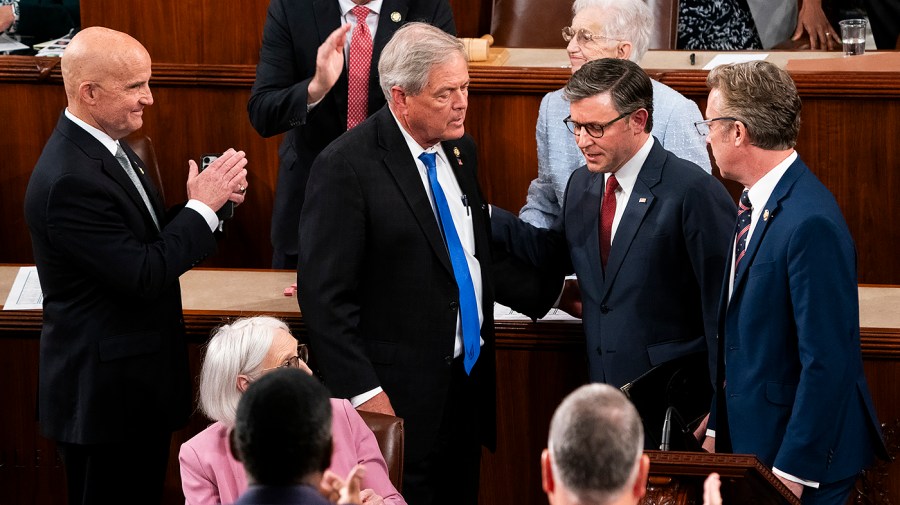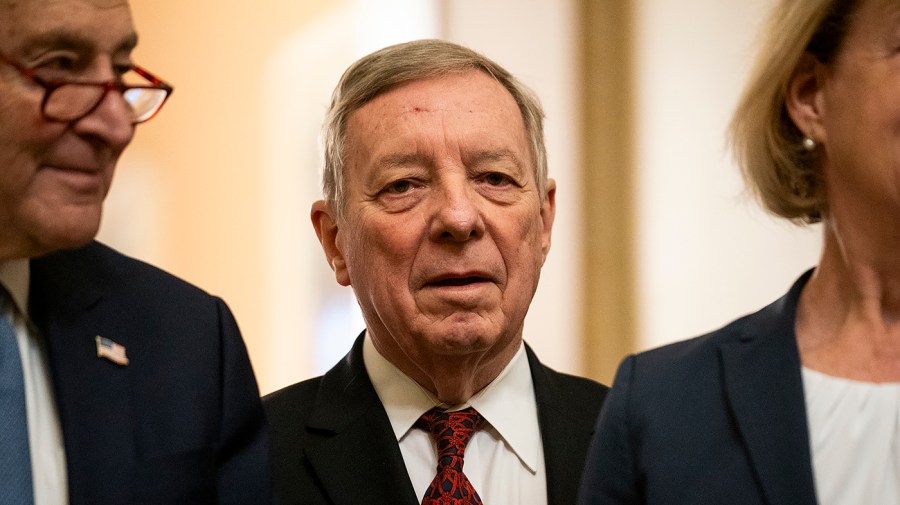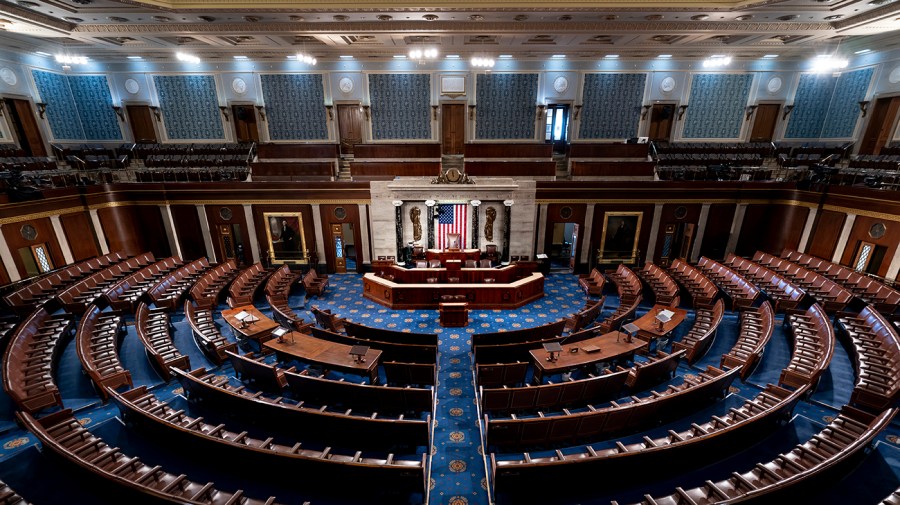
In shift, Trump downgrades soaring rhetoric on campaign promises
President-elect Trump on the campaign trail made grandiose promises to voters to bring down costs quickly, to end the war in Ukraine before he even took office and to use tariffs to bolster the U.S. economy and manufacturing.
Since winning November’s election, Trump has indicated delivering on those promises may not be as simple as advertised.
Trump in a recent “Meet the Press” interview said he could not guarantee tariffs would not lead to higher consumer prices.
He acknowledged in a Time magazine interview for his Person of the Year honor that it’s difficult to bring down the cost of groceries once they’ve gone up.
And in his first post-election press conference from his Mar-a-Lago estate in Palm Beach, Fla., Trump suggested ending the war in Ukraine would be more difficult than easing tensions in the Middle East.
While Democrats and critics accused Trump of lowering expectations or signaling he would not deliver on his campaign promises, the Trump transition and other allies argued it was the president-elect shifting from sweeping campaign rhetoric to the nuances and realities of governing.
“The American people re-elected President Trump by a resounding margin giving him a mandate to implement the promises he made on the campaign trail. He will deliver,” said Karoline Leavitt, a spokesperson for the transition and the incoming White House press secretary, in a statement.
One Trump ally argued the president-elect was not contradicting his promises on the trail, but he rather was shifting away from the sales pitch rhetoric that is typical of campaigns.
Trump made improving the economy, and inflation in particular, a core part of his campaign for the White House in 2024. He frequently railed against the Biden White House for the high cost of groceries specifically, and he often told supporters he would bring down costs by increasing the energy supply, which would have a ripple effect on overall prices.
“Prices will come down. You just watch. They’ll come down, and they’ll come down fast. Not only with insurance, with everything,” Trump told supporters in North Carolina in August.
At a rally in Pennsylvania on the eve of Election Day, Trump said a vote for him meant “your groceries will be cheaper.”
But in comments to Time on Nov. 25, Trump was more circumspect about his ability to bring down the cost of groceries. Asked if his presidency would be a failure if prices did not decline, Trump said he didn’t think so. “Look, they got them up. I’d like to bring them down. It’s hard to bring things down once they’re up. You know, it’s very hard,” Trump said. “But I think that they will. I think that energy is going to bring them down. I think a better supply chain is going to bring them down. You know, the supply chain is still broken.”
Democrats were quick to jump on Trump’s comments, suggesting it amounted to a broken campaign promise before he even took office.
“Candidate Trump promised to lower grocery prices, but now it seems he isn’t even going to try,” Sen. Elizabeth Warren (D-Mass.) posted on the social platform X. “While champagne corks pop at Mar-a-Lago, President-elect Trump says that he can’t really lower grocery prices because it’s ‘very hard.’ Sad. It’s the start of a broken promise.”
The Democratic National Committee highlighted Trump’s comments about groceries and compared them with comments he made on the floor of the New York Stock Exchange last week about trying to slash the corporate tax rate further.
The president-elect also struck a defiant tone on tariffs throughout the campaign, pushing back on anyone who suggested they would raise consumer prices, upend the economy or alienate allies hit with tariffs.
Since winning the election, Trump has largely maintained that posture, even as he has acknowledged the possibility that some companies might pass on costs to consumers.
“I can’t guarantee anything. I can’t guarantee tomorrow,” Trump told “Meet the Press” earlier this month. “But I can say that if you look at my — just pre-COVID, we had the greatest economy in the history of our country. And I had a lot of tariffs on a lot of different countries, but in particular China.”
In other areas of U.S.-foreign affairs, Trump has hearkened back to his more bombastic style — suggesting Canada become a 51st state, the Panama Canal be returned to U.S. control and again went after Greenland by suggesting U.S. ownership was “absolute necessity.” It’s possible Trump is using those warning as leverage for negotiating tactics involving tariffs and lowering the cost for American ships to cross from the Pacific to the Atlantic.
But Trump had also been more nuanced in recent days in speaking about the conflict between Ukraine and Russia, a war he said on the debate stage in September he would end “before even becoming president.”
The president-elect told reporters at a news conference this week he thought it would be more difficult to resolve the situation in Ukraine than it would be to lower tensions in the Middle East, a region that is rife with conflicts involving Israel, Iran, Syria and various proxy groups.
Trump told reporters Ukrainian President Volodymyr Zelensky and Russian President Vladimir Putin need to be prepared to make a deal to end the war, though he would not detail what either side should be willing to concede.
Zelensky, in an interview this week with Fox News correspondent Trey Yingst, said it would not be “simple” for Trump to influence Putin to end the war.
“But I think if to use all the issues what United States has, yes, he can. Because he is much more stronger than Putin,” Zelensky said. “He’s stronger. United States is stronger. Economy stronger. You know, money, big money. United States has big — very big influence.”
Trump in 2016 made a slew of campaign promises he struggled to deliver on. He repeatedly vowed he would build a wall along the southern border and that Mexico would pay for it, and while there was some new construction of barriers, Mexico did not foot the bill.
He also promised to repeal and replace the Affordable Care Act, known as ObamaCare. Republicans managed to get rid of the individual mandate portion of the law, but Trump and lawmakers failed to get rid of it or pass a health care plan of their own.



